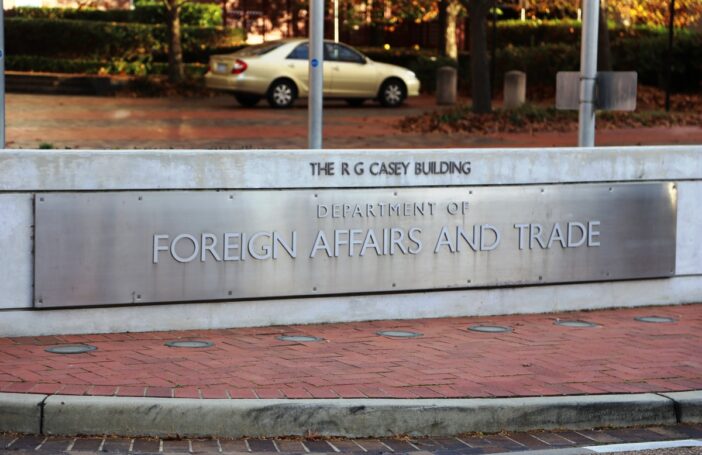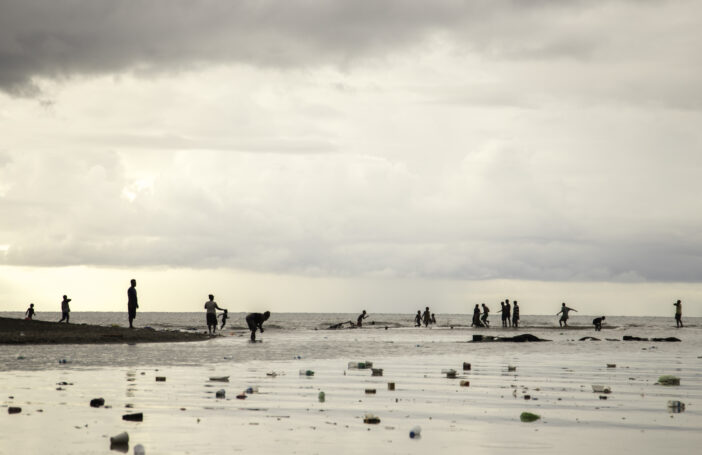The Greens’ vision for aid and development sees Australia not just contribute its fair share of Official Development Assistance (ODA), but also reimagines foreign aid, not simply as charity but as an issue of global racial justice. Aid should never be a way to further our own national ambitions or greedy trade interests. Aid programs should work to right historical wrongs and build up communities in parts of the world that have been left destitute.
Aid budget
For the first time in history, Australia’s aid budget is shamefully set to fall below 0.2% of our Gross National Income (GNI). In the current Budget, by 2023-24, it will fall to a measly 0.18% of GNI – a far cry from the United Nations target of at least 0.7%. This makes Australia’s aid contribution one of the lowest in the OECD, ranked at 21 out of 38 nations, and in sharp contrast with countries like the UK and Germany who spend a much bigger share of GNI on aid.
Australia has an obligation, particularly as a wealthy country and given its colonial past, to contribute to a just and equitable world by working with communities in the Global South to promote human rights, environmental protection, health, education and climate justice.
Decolonising aid
The Greens believe Australia should at least meet a target of 0.7% of GNI and also provide additional aid for crises like the Climate Emergency and COVID-19. But the quantity of aid isn’t the only question. An aid program that merely feathers the nests of private companies and ignores the communities it is meant to assist will not create lasting change. Transformative change does require resources, but importantly, it also requires the courage to set new rules. These new rules should put decolonisation at the heart of Australia’s aid program.
We live in an unjust world, where the Global North has long had a colonial and extractive relationship with the Global South, and inequality between people living in different parts of the globe is one of the most pressing emergencies facing humanity; a world in which someone’s place of birth decides more of what their life will be like than any other circumstance, ability or potential. Millions of children’s futures are stolen from them the moment they are born – as our passports, nationalities and places of birth continue to determine our futures.
Many international conflicts and humanitarian disasters owe their genesis to arbitrary lines on the map drawn by colonialists. The causes of climate disasters the world over are inevitably rooted in countries like Australia which are the biggest contributors to the climate emergency. Those who contributed least to the climate emergency we face are often the hardest hit by rising sea levels, extreme weather events and environmental damage.
The climate injustice gap between the global north and south has become a chasm which will drive a further wedge between those who can afford to adapt to the destruction of the world and those who are left to bear the brunt of a climate melt down.
Australia must provide climate reparations to affected countries and communities, commensurate with our historical and ongoing contribution to the problem.
Our aid programs must recognise the unique challenges faced by women and girls in this climate emergency. As we look to the future to create sustainable and inclusive economies and societies, we must place the human rights and self-determination of women and girls at the centre of Australian development assistance programs.
The inequitable global distribution of wealth and debt is the unjust result of colonialism and imperialism. As a colonial power, Australia has a responsibility to do something about it. The Greens want to cancel all of Australia’s bilateral debt and ensure we are a strong and principled advocate for global debt cancellation.
Accountability for aid
In recent years, Australia’s aid program has suffered from an increasing lack of proper reporting and accountability. This trend must be reversed by making detailed reporting on our aid program mandatory and by establishing an independent development oversight agency.
Too often, aid money ends up lining the profits of private companies owned and operated by Australians. At present, there is no reporting or accountability mechanism to keep a check on this. Our aid programs must recognise the strengths and capabilities of recipient countries and be led by and in partnership with the communities they are meant to serve. Our aid programs must genuinely collaborate with communities as equal partners, through the promotion of local ownership, participation and delivery of aid programs.
A human rights centred approach to foreign policy
A reimagining of our aid program is a key component of a human rights centred approach to foreign policy more broadly. Working bilaterally and multilaterally through relevant fora, our vision is for Australia to advocate against serious human rights violations wherever they occur, not just where it is geopolitically convenient. An unthinking alliance with the US, particularly under the Trump administration, has damaged our reputation as an honest broker in the region; instead, we want to see an independent, transparent, and accountable foreign policy that centres human rights.
Our vision is for Australia to look beyond its borders as a friend of people who are fighting oppression, marginalisation and injustices wherever they may be – and our aid program should reflect this.
Senators Faruqi and Rice discussed the Australian Greens aid and development policies at an International Development Election Forum on 4 May 2022. Watch the event recording.




